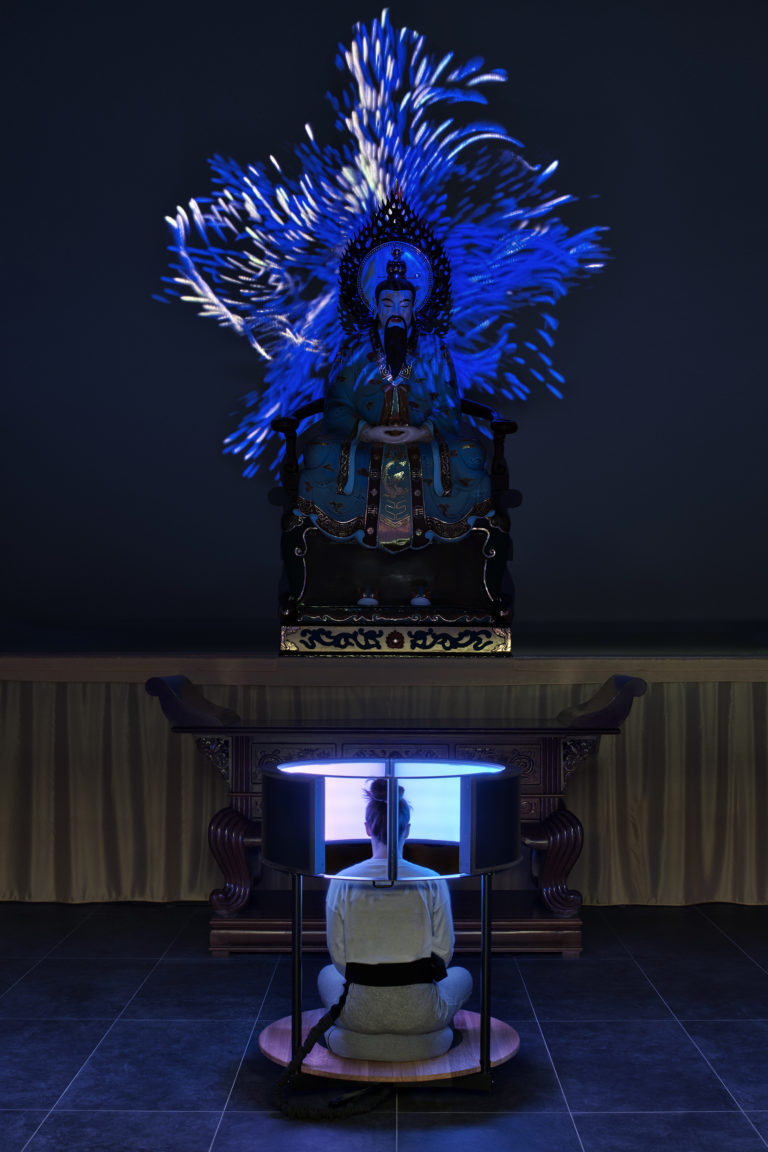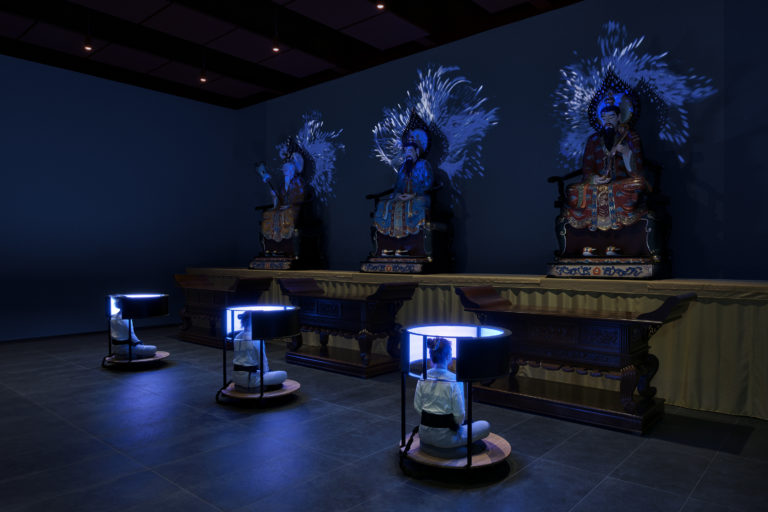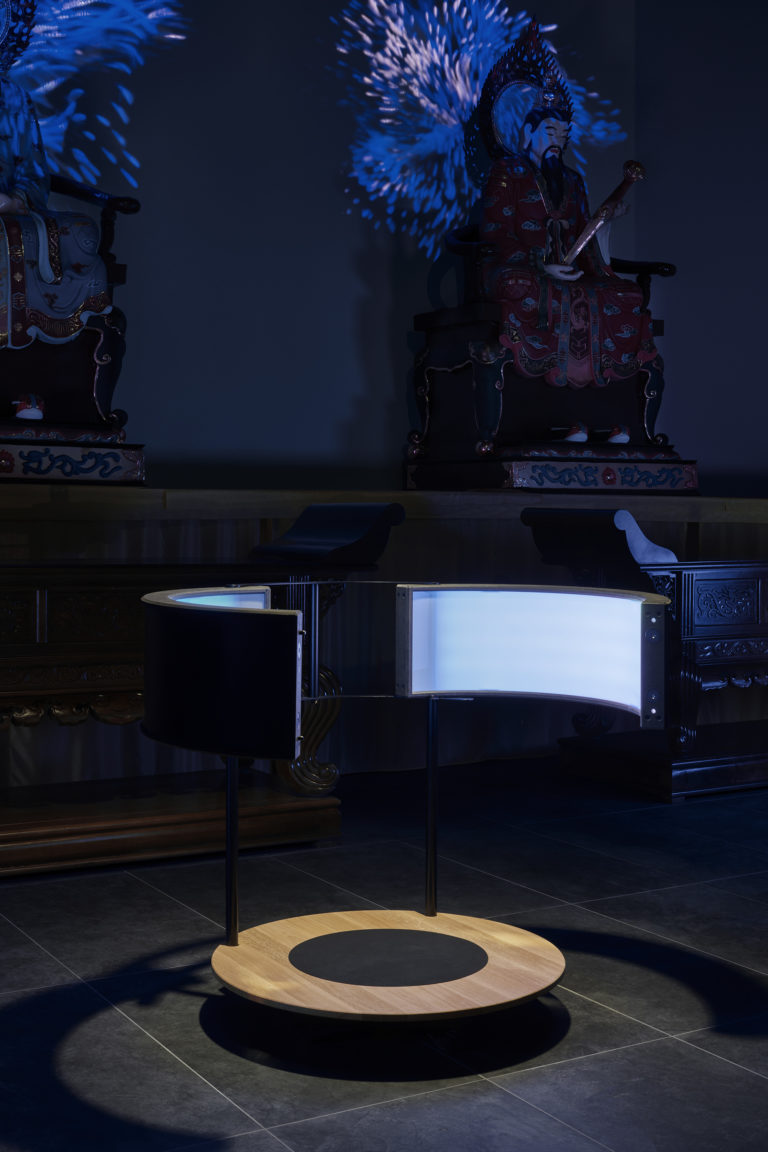Ming Shan Digital Experience
In order to explore these new perspectives, the EPFL+ECAL Lab partnered with the Ming Shan Taoist Centre, opened in 2019 in Switzerland, and developed a new generation of design-driven mediation devices.
The project journey started in China, observing traditional practices in secular sacred places. Then, combining design research with scientific literature, the knowledge of meditation experts and insights from medical doctors, the project led to the development of a series of immersive stations for meditation.
Installed at the Ming Shan Temple, the installations support guided meditation in three phases: entering relaxation, meditation and wake-up.
As well as giving feedback on individual meditation, the research also investigates how to induce a group response through sound. Qualitative and quantitative scientific evaluations with meditation novices and experts were led in collaboration with UX psychologists of the University of Fribourg.
Practitioners are immersed in a luminous ring whose light, colour, rhythm and intensity reflect their inner changes in real time and stimulates attention to their own body. Colours produced by the light ring evolve over the meditation phases, and physiological information from sensors generates additional visual and acoustic feedback.
Evolving according to the state of the participants using biofeedback technique, this immersive environment aims to facilitate not only individual practice, but also to strengthen collective meditation. After each meditation session, visual traces are left to perpetuate the flow and energy within the temple.
The three meditation decks have been operational at the Ming Shan Taoist Centre since November 2019.
Direction
Project Management & Art Direction
Research Assistant
Interaction Design
Margaux Charvolin in cooperation with Lara Défayes
Software Engineering
Delphine Ribes, Yves Kalberer, Luca Sassoli de Bianchi
Industrial Design
Matthieu Girel, Béatrice Durandard
Hardware & Firmware Engineering
Sound Design
UX Psychology
Dr Andreas Sonderegger with assistance of Stanislav Riss and Clara Evans
Photography Credits
© EPFL+ECAL Lab / Daniela & Tonatiuh





